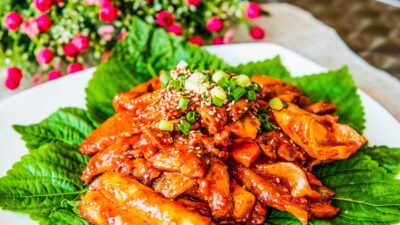French cuisine stands as one of the most influential and cherished culinary traditions globally. Over centuries, it has evolved, reflecting the richness of its history, culture, and regional diversity. This article explores the journey of French cuisine, tracing its evolution from classic roots to the contemporary innovations that define it today.
The Foundations: Classic French Cuisine
Classic French cuisine is characterized by its precise techniques, high-quality ingredients, and intricate recipes. This period reached its zenith in the 17th and 18th centuries and is often attributed to the work of chefs such as Marie-Antoine Carême and Auguste Escoffier.
Key Features of Classic French Cuisine:
-
Techniques: Techniques such as sautéing, braising, and poaching became fundamental, laying the groundwork for modern cooking methods.
-
Sauces and Stocks: The development of mother sauces (béchamel, nage, velouté, hollandaise, and espagnole) showcased the art of balancing flavors and textures.
-
Regional Diversity: Each French region brought its own ingredients and traditional dishes — from the seafood of Brittany to the rich cheeses of Normandy and the fragrant herbs of Provence.
- Classic Dishes: Dishes like Coq au Vin, Bouillabaisse, and Ratatouille reflect a deep connection to regional ingredients and cooking traditions.
The Influence of the French Revolution
The French Revolution (1789) marked a significant turning point. The social upheaval interrupted the traditional hierarchy and the established culinary structures. Chefs began to open their own establishments, leading to a democratization of French cuisine. It birthed the modern restaurant system, reshaping how cuisine was experienced and appreciated.
The Birth of Nouvelle Cuisine
By the mid-20th century, a culinary revolution was underway with the emergence of Nouvelle Cuisine, introduced by chefs like Paul Bocuse and Michel Guérard. This movement emphasized fresh, high-quality ingredients, lighter dishes, and innovative presentation.
Characteristics of Nouvelle Cuisine:
-
Simplicity and Freshness: Focus on fresh ingredients and shorter cooking times, allowing natural flavors to shine.
-
Artistic Presentation: A shift toward visually appealing plating, transforming dishes into edible art.
-
Health Consciousness: An emphasis on lighter dishes, often incorporating seasonal vegetables and herbs, catering to a health-conscious client base.
- Global Influences: Chefs began to draw inspiration from international cuisines, reflecting the growing interest in diverse culinary traditions.
Contemporary French Cuisine
As we moved into the late 20th and early 21st centuries, the boundaries of French cuisine expanded further with the advent of contemporary trends. Today, French chefs are experimenting with fusion techniques, sustainability, and the farm-to-table movement.
Contemporary Trends:
-
Fusion Cuisine: Modern chefs blend French techniques with international flavors, resulting in innovative dishes that defy traditional classifications.
-
Sustainability: A growing awareness of environmental impact has led chefs to embrace locally sourced ingredients, organic produce, and sustainable fishing practices.
-
Plant-Based Movement: As vegetarianism and veganism rise, many French kitchens are innovating plant-based dishes that showcase the versatility of vegetables and grains.
-
Technology and Innovation: The use of modern kitchen techniques such as sous-vide, molecular gastronomy, and fermentation has expanded the culinary vocabulary, enhancing flavors and textures.
- Culinary Education and Global Influence: Institutions like Le Cordon Bleu have globalized French culinary education, influencing chefs around the world to adapt French techniques and flavors to local cuisines.
The Future of French Cuisine
Looking ahead, French cuisine is likely to continue evolving, constantly informed by global trends, regional realities, and the dynamic nature of food culture. The future of French cuisine will balance tradition and innovation, celebrating its rich heritage while remaining open to new influences and perspectives.
Conclusion
From its classic roots steeped in tradition to its contemporary interpretations that push culinary boundaries, French cuisine remains a symbol of gastronomic excellence. Whether enjoyed in a Michelin-starred restaurant or a cozy bistro, French food continues to captivate palates worldwide, reminding us that the essence of cuisine is not only about flavor but also about the shared experience of eating, celebrating, and connecting with one another. As it evolves, one thing remains clear: French cuisine will always have a place at the table, inspiring future generations of chefs and food enthusiasts alike.



